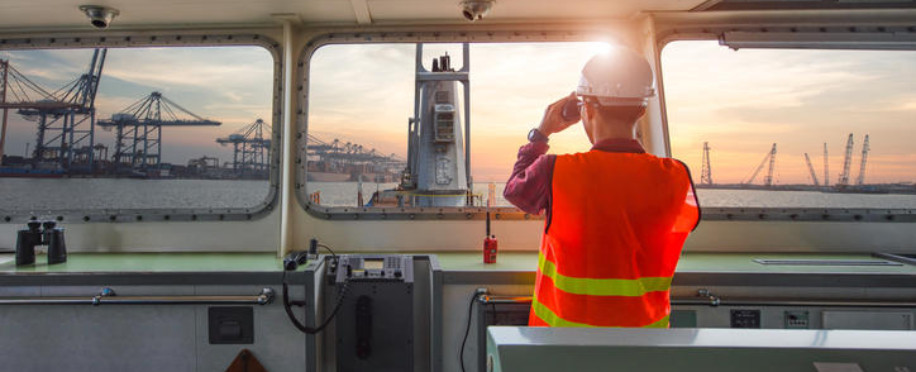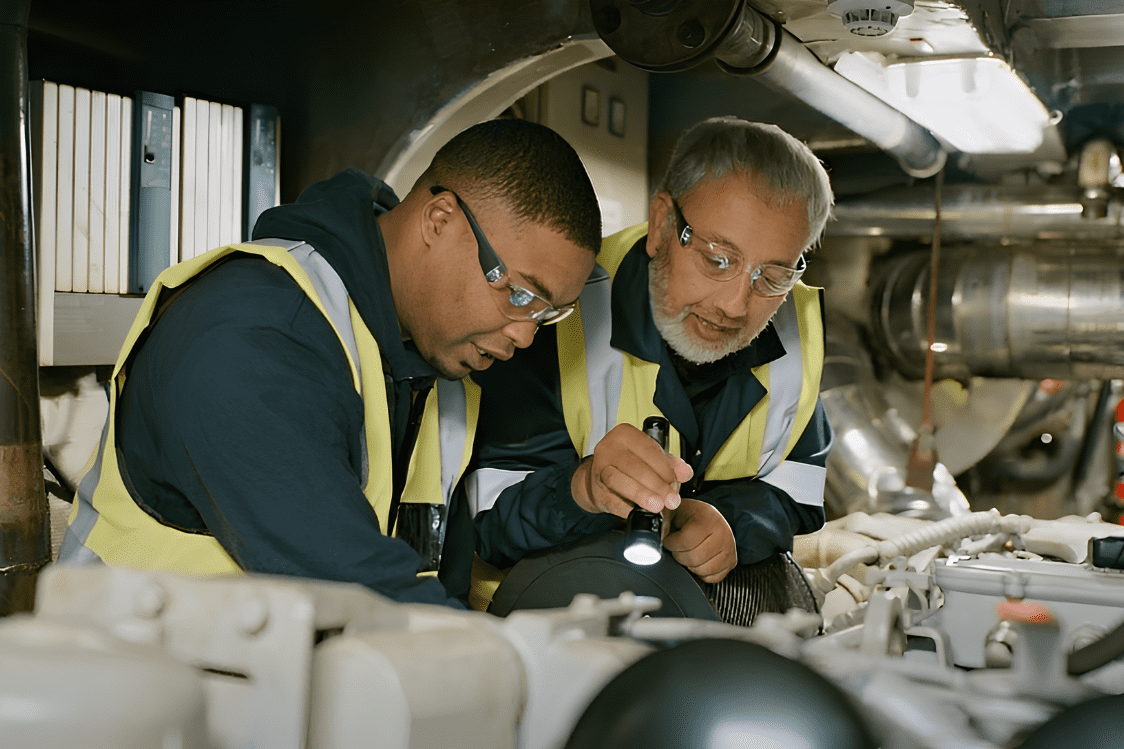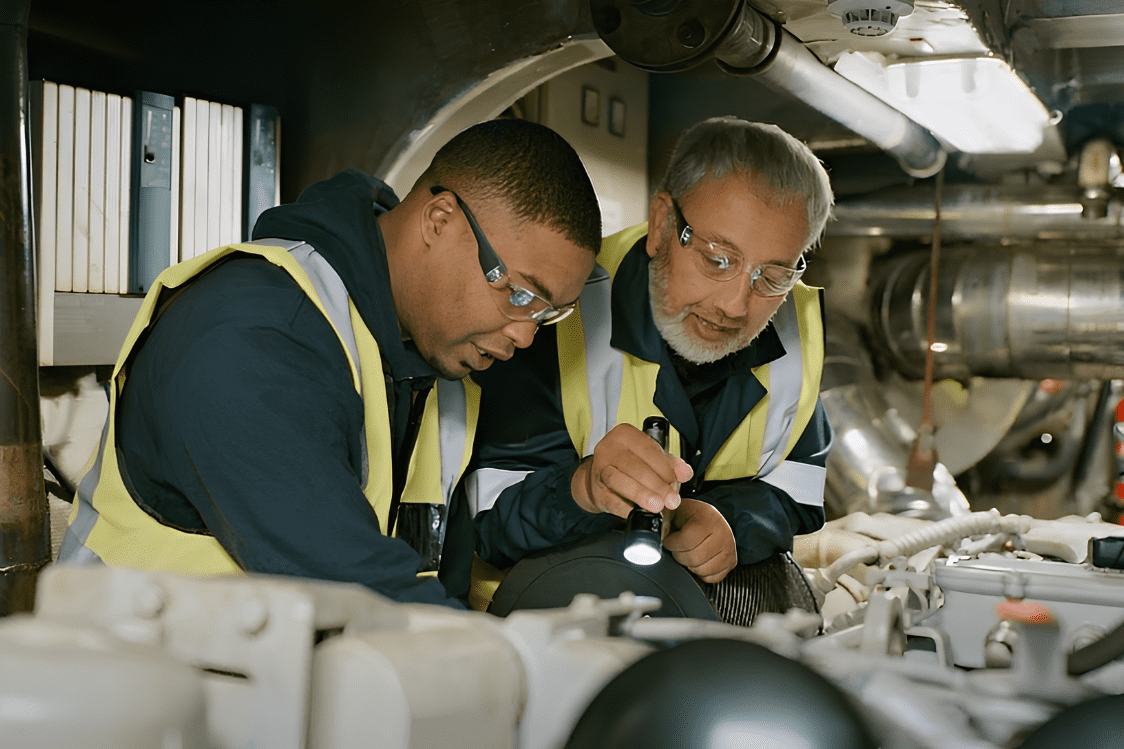Career Opportunities in Offshore Engineering: Skills and Pathways

Posted on Jul 18, 2024 at 10:07 PM
The amazing marine industry includes various engineering services to cover the coastal and offshore structures and designs, and offshore engineering is the leading science that covers offshore design and structural services.
Moreover, offshore engineering depends on advanced technical and mechanical tools, equipment, and techniques to establish stable and superior structures on the ocean.
Today, we will share with you full information about offshore engineering with the required master's degree, certificate, skills, and available career pathways.
What Is Offshore Engineering?
Offshore engineering is the engineering field that includes all the design, construction, and maintenance activities and innovative solutions on and within the sea.
Thus, learning about the civil, design, mechanical, electrical, and structural engineering principles within the marine engineering courses UK is essential to gaining experience and becoming a professional offshore engineer.
Moreover, offshore engineering is considered a part of ocean engineering, yet, it is a specialised program in creating offshore structures, applications, and services.
What Does an Offshore Engineer Do?
Offshore engineers are the ones to design and construct marine and offshore stations and fixed structures, including renewable energy platforms, rigs, subsea systems, and sustainable wind farms.
Furthermore, offshore engineering services also ensure that all the on and under-water constructions, including designed pipelines, can handle a variety of marine environment conditions, and are eco-friendly to protect the ocean environment.
Some offshore engineers specialise in developing marine technology for boosting international naval architecture and offshore engineering.
5 Key Required Skills to Become an Offshore Engineer:
If you are interested in becoming an offshore engineer, then after finishing the university phase, and graduating, you need to develop your engineering knowledge toward these global skills to gain great benefits:
Problem Solving Skills:
Offshore engineers may face different challenges and aspects in each project, due to the hard-working conditions, remote locations, and advanced used technology, thus, they need to learn how to analyse and solve drilling, installation, mechanics, position, and other problems effectively without impacting the production levels.
Effective Communication Skills:
Especially since senior offshore engineers will have to manage large working teams in different roles, and communicate with a wide range of offshore managers, experts, clients, and stockholders to build professional relations, and deliver the technological and commercial approach in the best way.
Technology Knowledge:
Various marine technologies and tools must be used in offshore engineering structures, thus, the marine offshore engineer must have the scientific and practical knowledge to implement them effectively, including the use of autonomous ships.
Work Under Pressure:
As we all know the maritime industry is a critical one with a high level of pressure due to high costs and error possibilities, therefore the offshore engineer must be able to work under pressure with full concentration to be able to keep a smooth workflow on all operations.
Safety and Risk Management:
Due to the heavy use of machines, special required jobs, remote work locations, and hard environmental conditions, knowing how to apply a controlled safety and risk management strategy is vital for offshore engineers in offshore wind farms, oil and gas platforms, and other marine structures.

Possible Career Paths in Offshore Engineering:
To share with you a comprehensive overview of the offshore engineering field, we are going to share with you these career paths to consider as an offshore engineer:
- Shipbuilding Industry.
- Oil and gas Industry.
- Offshore Wind Power Industry.
- Offshore Electrical Building Industry.
What Is the Difference Between Onshore and Offshore Engineering?
Although both onshore and offshore engineering fields include the design, structure, and maintenance services of all included structures, yet, onshore engineering works on coastal structures, like ports and terminals.
On the other hand, offshore engineering technology covers offshore structures like oil and gas platforms, floating stations, and wind farms.
However, both fields intersect at some points like shipbuilding, submarine designing, and deep-sea exploration.
To sum up,
Offshore engineering is a basic player in marine engineering services and structures, as it directly impacts the safety and efficiency of offshore projects and operations.
Therefore, you need to gain professional training to succeed in this vital engineering field.





